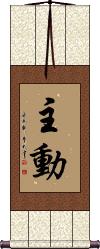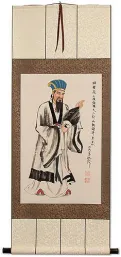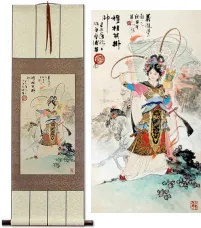Many custom options...
And formats...

Initiative Leadership in Chinese / Japanese...
Buy an Initiative Leadership calligraphy wall scroll here!
Initiative / Leadership
In Chinese, this word means “to take the initiative.”
In Japanese and Korean, the meaning varies slightly to meaning that leans more toward “leadership” (as in one who is leading a group or organization).
This in-stock artwork might be what you are looking for, and ships right away...
Gallery Price: $71.00
Your Price: $39.00
Gallery Price: $108.00
Your Price: $59.88
Not the results for Initiative Leadership that you were looking for?
Below are some entries from our dictionary that may match your Initiative Leadership search...
| Characters If shown, 2nd row is Simp. Chinese |
Pronunciation Romanization |
Simple Dictionary Definition |
主動 主动 see styles |
zhǔ dòng zhu3 dong4 chu tung shudou / shudo しゅどう |
More info & calligraphy: Initiative / Leadershipleadership |
主導 主导 see styles |
zhǔ dǎo zhu3 dao3 chu tao shudou / shudo しゅどう |
leading; dominant; prevailing; to lead; to direct; to dominate (noun, transitive verb) leadership; initiative; spearhead |
主導権 see styles |
shudouken / shudoken しゅどうけん |
hegemony; leadership; initiative |
The following table may be helpful for those studying Chinese or Japanese...
| Title | Characters | Romaji (Romanized Japanese) | Various forms of Romanized Chinese | |
| Initiative Leadership | 主動 主动 | shudou / shudo | jī jí / ji1 ji2 / ji ji / jiji | chi chi / chichi |
| In some entries above you will see that characters have different versions above and below a line. In these cases, the characters above the line are Traditional Chinese, while the ones below are Simplified Chinese. | ||||
Successful Chinese Character and Japanese Kanji calligraphy searches within the last few hours...






